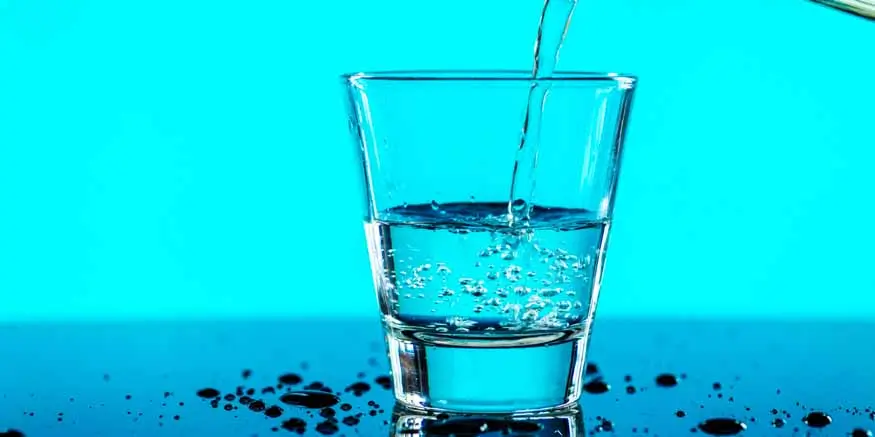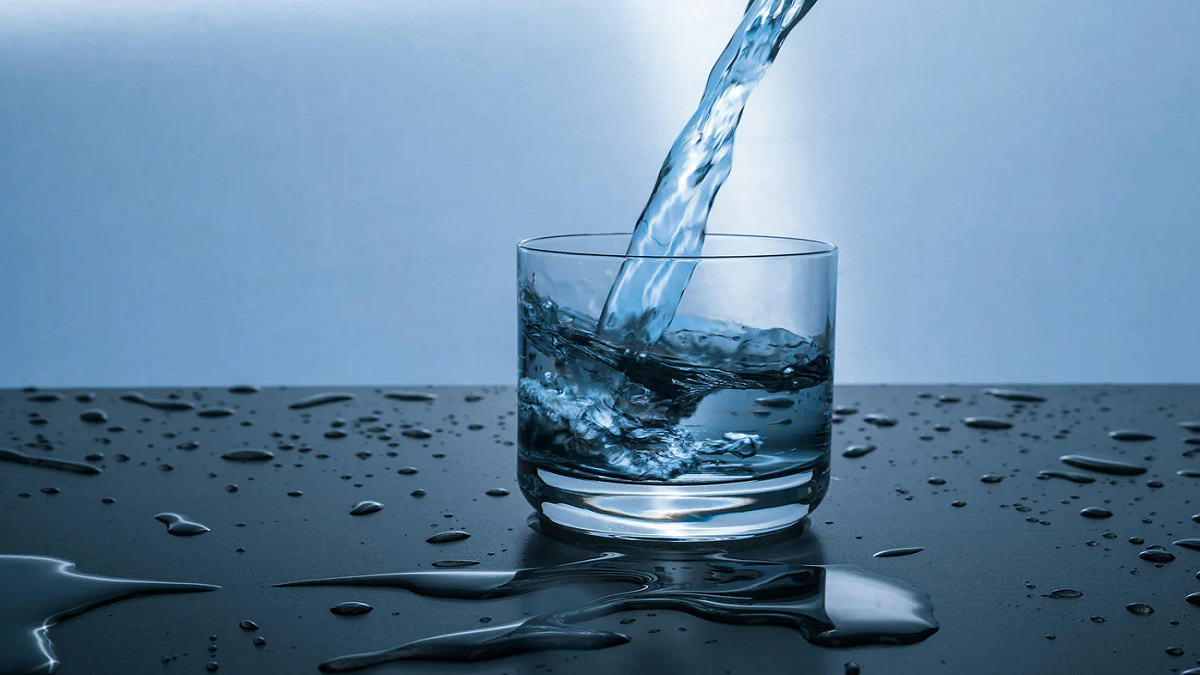Rains bring much-needed cool weather and relief from summer’s heat. While the monsoon season provides considerable benefit, the weather pattern weakens your defenses and health. Additionally, you will perspire and get dehydrated, both of which will negatively impact your health. For this reason, you should stay hydrated throughout the season and understand the importance of drinking purified water.
Rainfall during the monsoon season offers a moment’s relief, but the humidity returns after the showers, posing a major health danger. One of them is dehydration, which results in the body losing vital minerals via sweat.
The most common way that waterborne illnesses are spread is via contaminated water. When someone cooks with or drinks contaminated water, they become sick. Eating food cooked in contaminated water might cause severe gastrointestinal disorders.
Why You Should Drink Purified Water During Monsoon

1. Strengthens The Immune System
The monsoon season is when most people become ill because of the greater humidity, rapid changes in the weather, and the higher risk of being sick from water. When the air is moist, it may weaken the immune system, making the body more likely to get colds, the flu, and gastrointestinal problems.
Drinking enough pure mineral water is a beneficial way to boost your immune system and keep yourself from becoming sick during this period. Furthermore, it helps get rid of dangerous pollutants that might build up in the body and make the immune system less effective. Mineral water also replaces important electrolytes that you lose when you sweat, which keeps your body balanced and full of energy.
A bottle of mineral water may help you stay hydrated and safe, even when you’re outdoors and the weather is unpredictable. The importance of drinking purified water is that it helps your body digest food better, speeds up your metabolism, and makes it easier for your body to fight against seasonal diseases.
2. Promotes Healthy Skin
Because of the irregular weather during the monsoon season—fluctuating humidity levels, wetness, and greater exposure to pollutants—many people commonly have skin issues such as pimples and acne breakouts. These diseases might increase owing to blocked pores, excessive oil production, and a buildup of toxins in the body.
One simple but efficient strategy to address these disorders is by consuming two to three liters of water every day. Adequate water consumption helps wash out toxins via the kidneys and promotes the proper functioning of other key organs like the intestines and liver, which are needed for detoxification.
Additionally, being well-hydrated stimulates collagen formation, which is vital for preserving skin suppleness, eliminating blemishes, and creating a young shine. Water also helps to keep the skin hydrated from the inside, avoiding dryness and irritation caused by weather swings. Making hydration a routine will substantially enhance your skin’s clarity, texture, and overall brightness throughout this uncertain season.
3. Fights Diseases
Mosquitoes tend to multiply fast during the rainy season owing to stagnant water gathering in open spaces, drains, and containers. This raises the danger of mosquito-borne and water-borne diseases such as cholera, typhoid, diarrhea, dengue, and malaria. Maintaining excellent health and strong immunity is vital to preventing sickness during this sensitive period.
One simple but effective strategy is to drink clean and safe mineral water consistently. Mineral water is filled with important minerals like potassium and magnesium, which play a key role in sustaining healthy biological processes. Potassium helps control fluid balance and neuron function, while magnesium promotes muscular health, immunological strength, and energy generation.
Understanding the benefits of drinking purified water and carrying a bottle while outdoors ensures that you remain well-hydrated with high-quality water, reducing the risk of consuming contaminated sources. Regular drinking of mineral water boosts hydration, enhances resistance to illnesses, and benefits general well-being throughout the monsoon season.
4. Good For Your Hair
Water intake is also considered to have a significant part in promoting healthy hair, especially during the rainy season when excess humidity and pollution may make hair greasy, frizzy, and unmanageable. The scalp tends to absorb perspiration and grime more rapidly during this season, resulting in greasy, filthy hair and even scalp diseases.
Drinking appropriate water—at least two to three liters a day—helps maintain internal hydration, which is crucial not only for your skin but also for your scalp and hair. When your body is well-hydrated, your scalp stays nourished, decreasing dryness, itching, and excess oil production.
Proper hydration also promotes improved blood circulation to the hair follicles, which fosters hair growth and preserves strength. As a consequence, your hair keeps its natural luster, elasticity, and smooth texture. So, being regularly hydrated by drinking clean water will go a long way in helping you retain strong, healthy, and vibrant hair during the unpredictable monsoon months.
5. Improved Hydration
The taste and texture of untreated or polluted water may be unpleasant owing to the presence of contaminants such as chlorine, bacteria, heavy metals, or other pollutants. This may significantly affect the flavor, smell, and look of the water, making it unattractive to drink. As a consequence, people—especially children—may avoid drinking it completely.
Your youngster can swallow only one or two sips and then refuse to drink more, leading to dehydration and accompanying health risks. This is when purified or mineral water becomes vital. Purified water is free from smells and dangerous pollutants, delivering a clear, crisp flavor that promotes frequent intake. When water tastes fresh and nice, folks are more inclined to drink enough of it throughout the day.
The importance of drinking purified water leads to greater hydration, which is crucial for general health, including digestion, energy levels, and skin health. Simply explained, clean-tasting water pushes individuals to drink more and be adequately hydrated.
6. Better Digestion
The benefits of drinking purified water serve a critical function in aiding your body’s natural detoxifying processes. It helps flush out waste and dangerous toxins via perspiration, urine, and bowel movements, which is crucial for maintaining internal balance and general well-being. One of the primary advantages of ingesting purified water is its good influence on digestion.
Clean, safe water assists in breaking down food more effectively, enabling nutrients to be absorbed correctly in the intestines. It also promotes the optimum functioning of digestive enzymes and stomach acids, which are vital for digesting meals and reducing difficulties like bloating, indigestion, and constipation.
Unlike polluted or untreated water, purified water is free from dangerous bacteria, chemicals, and heavy metals that might alter gut health. By drinking appropriate quantities of purified water every day, you not only assist your body in removing toxins but also guarantee that your digestive system runs efficiently, keeping you active, healthy, and comfortable after meals.
Read More: 9 Benefits of Drinking Hot Water
7. Lowers Risk of Kidney Stones
Kidney stones may occur when excess minerals—especially calcium and magnesium—accumulate and crystallize in the kidneys. This is commonly connected to the regular use of hard water, which includes high quantities of these minerals. Over time, this accumulation may lead to the painful production of kidney stones. Drinking purified or purified water is a simple but effective strategy to lessen this risk.
Purified water helps flush away extra minerals and waste materials from the body before they may form stones. It also avoids the intake of potentially dangerous substances such as heavy metals, microorganisms, and other pollutants that may be present in untreated water.
By minimizing the stress on your kidneys and enhancing the quality of water drunk, purified water promotes the normal functioning of these critical organs. Consistently drinking clean, purified water may therefore help greatly to preserve kidney function, reduce stone formation, and support general urinary tract health.
8. Lowers Risk Of Chronic Diseases
Are you aware that drinking purified water may help minimize the chance of acquiring chronic illnesses? Many long-term health concerns, including some forms of cancer, reproductive troubles, and neurological diseases, have been related to extended exposure to dangerous pollutants present in unpurified water.
Heavy metals like lead and mercury, herbicides, industrial chemicals, and even chlorine by-products may be present in these pollutants. By selecting purified water, you greatly limit your exposure to these hazardous compounds.
Purified water eliminates pollutants while maintaining key minerals, giving your body cleaner and safer hydration. Over time, continuous use of purified water may strengthen your immune system, decrease inflammation, and lessen oxidative stress, factors that are typically associated with chronic disease development.
Making the transition to purified water is a simple but effective preventative action. It’s a tiny daily decision that promotes long-term health, helping to defend against major diseases and enhance your general quality of life.
The Danger of Water Pollution in the Monsoon Season
Let’s offer a clear explanation of why water safety becomes a key worry during the rainy season. When significant rainfall happens, natural water bodies like rivers, lakes, and reservoirs sometimes overflow or flood. This flooding allows numerous contaminants—such as dirt, trash, animal feces, and chemicals—to mingle with water sources. Sounds alarming, right? But that’s only the beginning.
Floodwater may transport sewage, industrial waste, and agricultural runoff into drinking water sources. These substances frequently include hazardous diseases, poisonous chemicals, and contaminants. Drinking or using this polluted water without proper treatment can pose significant health risks.
Dangerous viruses and bacteria proliferate under such circumstances, making monsoon-related waterborne illnesses, including cholera, typhoid, dysentery, and hepatitis A and E, more widespread. Additionally, stagnant rainfall offers an excellent breeding ground for mosquitoes and other insects. Diseases such as malaria and dengue may spread swiftly owing to the increasing mosquito population.
To make things worse, stagnant water may also leak into wells and pollute subterranean water supplies, further jeopardizing water safety. Given these threats, it’s necessary to understand the importance of drinking purified water. Make sure you drink only purified or boiled water during the monsoon season.
Furthermore, restrict your children from playing with or keeping water in buckets or containers, since these may readily become mosquito breeding places. Even a tiny quantity of unused water might lead to health concerns. Taking these steps may go a long way in safeguarding your family’s health during this high-risk season.
FAQ
Q: I can’t afford mineral water; what should I do?
A: You can boil normal drinking water, add drinkable chemicals, or filter the water to stay safe.
Q: During the rainy season, how much water should one consume each day?
A: Drinking water before you even feel thirsty is the best way to combat dehydration during the monsoon. To keep yourself well hydrated, try making a mental point to drink 8 to 10 glasses of water each day.
Q: Why is purified water preferred?
A: Hydration, better skin health, a faster metabolism, and effective detoxification are some of the advantages of drinking purified water. It’s a safe and vital option for everyday hydration, guaranteeing the lack of dangerous impurities and offering vital minerals required for general health.











